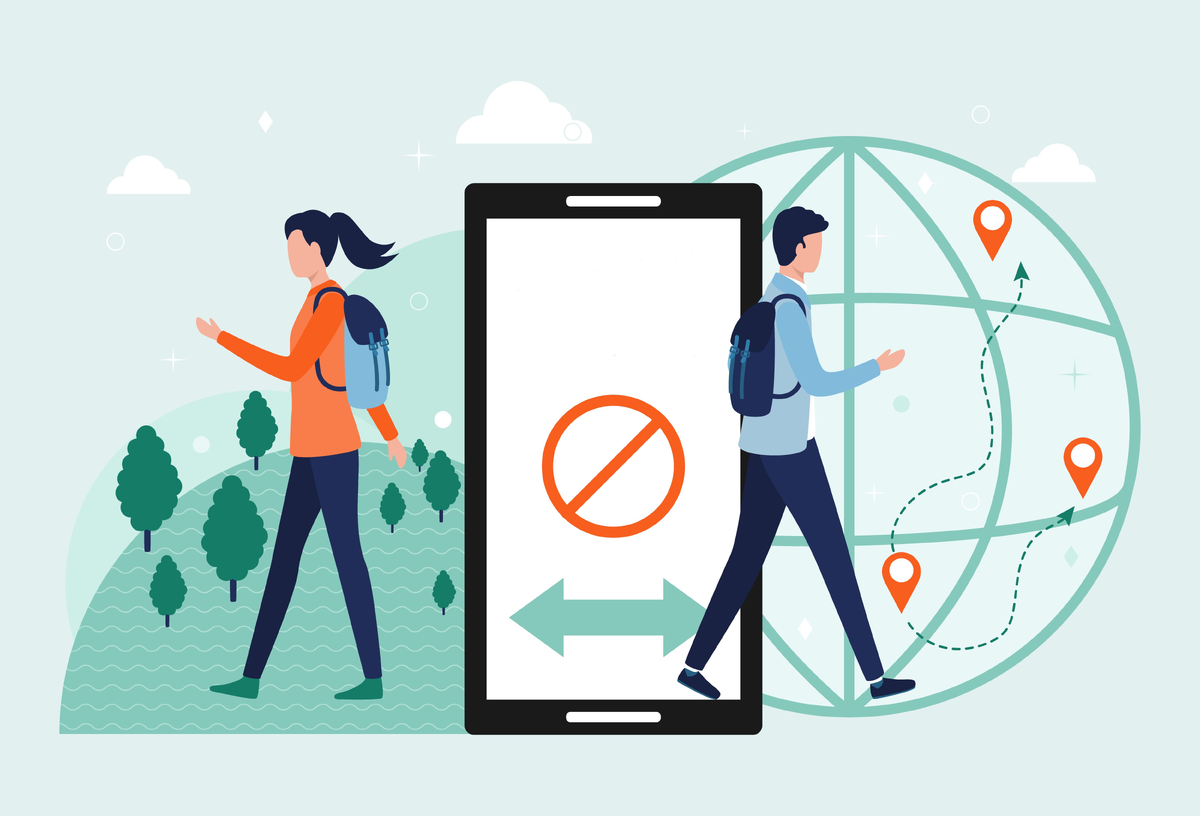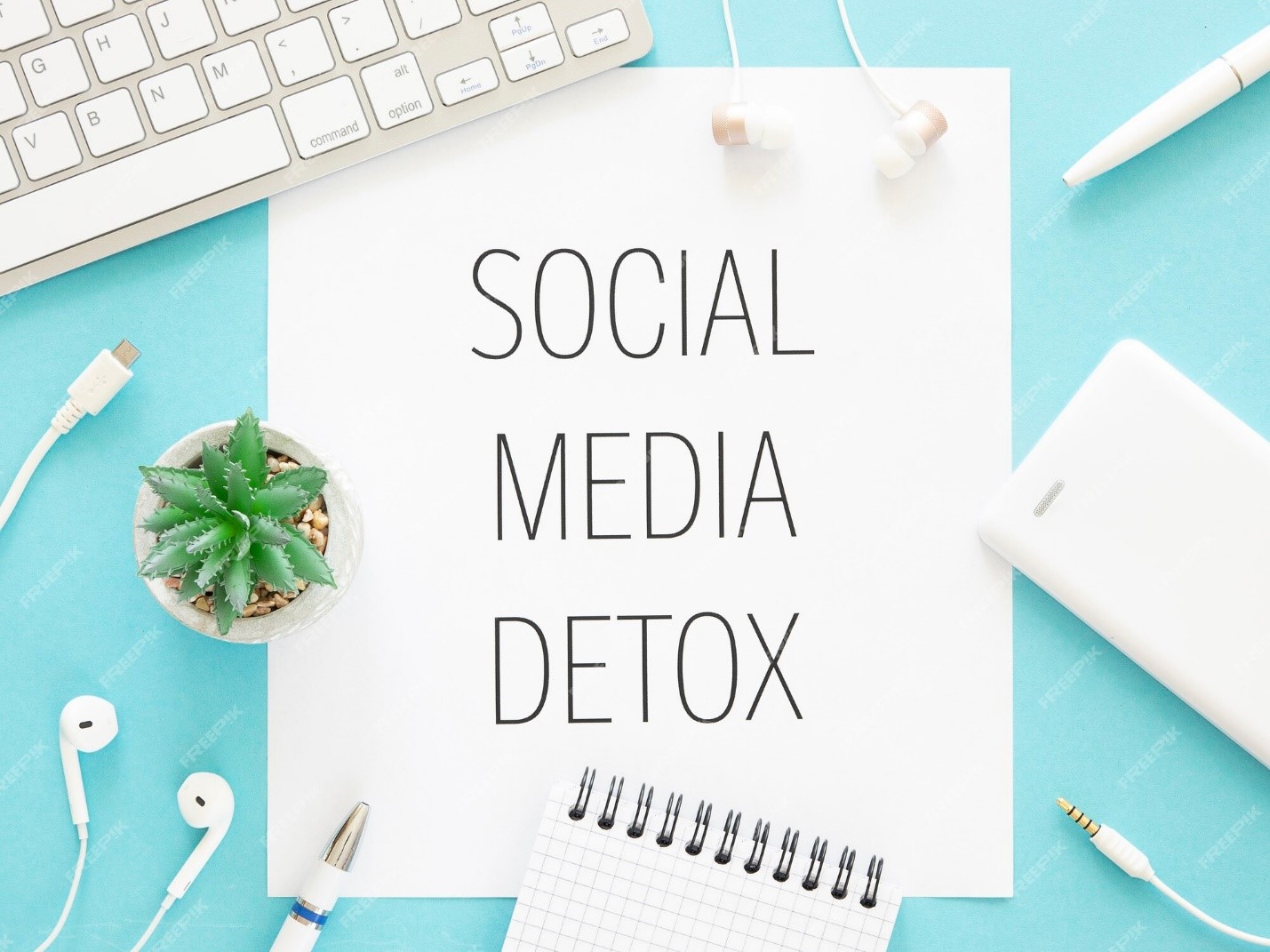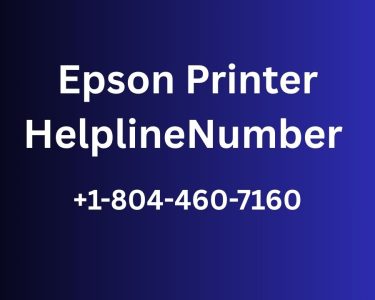In today’s digital age, social media has become an integral part of our daily lives. Platforms like Facebook, Instagram, Twitter, and TikTok offer endless streams of information, entertainment, and social interaction. However, the constant connectivity comes with a cost. As the lines between the virtual and real worlds blur, more people are recognizing the need for a “Social Media Detox” to maintain their mental well-being. This article explores the concept of a Social Media Detox, its benefits, and how to effectively implement one.
Understanding Social Media Detox
A Social Media Detox refers to a deliberate and temporary withdrawal from social media platforms. The objective is to reduce the negative impacts that social media can have on mental health, such as anxiety, depression, and stress. This break allows individuals to regain control over their time, focus on real-life interactions, and improve their overall mental health.
Why is a Social Media Detox Necessary?
1. Mental Health Concerns
Numerous studies have linked excessive social media use to mental health issues. The constant comparison with others’ seemingly perfect lives can lead to feelings of inadequacy and low self-esteem. Moreover, the barrage of information can overwhelm the brain, leading to anxiety and stress.
2. Sleep Disruption
The blue light emitted by screens can interfere with the production of melatonin, the hormone responsible for regulating sleep. Scrolling through social media feeds before bedtime can disrupt sleep patterns, leading to insomnia and poor sleep quality.
3. Decreased Productivity
Social media can be a significant distraction, pulling individuals away from their tasks and responsibilities. The constant notifications and the urge to check updates can lead to decreased productivity and focus.
4. FOMO (Fear of Missing Out)
FOMO is a psychological phenomenon where individuals feel anxious about missing out on social events, experiences, or news. Social media amplifies this fear, as users are constantly exposed to what others are doing, leading to feelings of exclusion and dissatisfaction.
Benefits of a Social Media Detox
1. Improved Mental Health
Taking a break from social media can lead to a significant reduction in anxiety and depression. Without the constant comparison and information overload, individuals can focus on their own lives and well-being.
2. Better Sleep
Reducing screen time, especially before bed, can improve sleep quality. Without the blue light interference and the mental stimulation from social media, individuals can achieve a more restful and uninterrupted sleep.
3. Increased Productivity
A Social Media Detox can lead to increased focus and productivity. Without the constant distractions, individuals can dedicate more time and attention to their tasks, leading to better performance and efficiency.
4. Enhanced Real-Life Connections
Taking a break from social media allows individuals to invest more time in real-life interactions. This can lead to stronger relationships and a greater sense of community and belonging.

How to Implement a Social Media Detox
1. Set Clear Goals
Before starting a Social Media Detox, it’s essential to set clear goals. Determine the duration of the detox and what you hope to achieve. Whether it’s reducing anxiety, improving sleep, or increasing productivity, having a clear objective will help you stay committed.
2. Inform Your Network
Let your friends and family know about your decision to take a break from social media. This will prevent any misunderstandings and ensure that they can reach you through other means if necessary.
3. Remove Temptations
Delete social media apps from your phone and log out of your accounts on other devices. This will reduce the temptation to check updates and help you stay committed to your detox.
4. Find Alternative Activities
Identify activities that can replace the time you usually spend on social media. Whether it’s reading, exercising, or spending time with loved ones, finding alternative activities will make the detox more manageable and enjoyable.
5. Reflect and Reevaluate
Use the detox period to reflect on your social media habits and their impact on your life. After the detox, reevaluate how you want to use social media moving forward. Consider setting boundaries, such as limiting screen time or designating specific times for social media use.
Real-Life Success Stories
Case Study 1: Sarah’s Journey to Better Mental Health
Sarah, a 28-year-old marketing professional, found herself constantly anxious and stressed due to her excessive social media use. She decided to take a month-long Social Media Detox. During this period, she focused on self-care activities like yoga and journaling. By the end of the detox, Sarah noticed a significant improvement in her mental health and decided to limit her social media use to 30 minutes a day.
Case Study 2: John’s Productivity Boost
John, a university student, struggled with procrastination and poor academic performance due to his social media habits. He decided to take a two-week Social Media Detox during his exam period. Without the constant distractions, John was able to focus better on his studies and saw a noticeable improvement in his grades. He now uses social media only during weekends.
Conclusion
The rise of the Social Media Detox is a testament to the growing awareness of the impact of social media on mental health. While social media has its benefits, it’s essential to recognize when it becomes detrimental to our well-being. Taking periodic breaks can lead to improved mental health, better sleep, increased productivity, and stronger real-life connections. By understanding the importance of a Social Media Detox and implementing it effectively, individuals can regain control over their lives and achieve a healthier balance between the virtual and real worlds.




